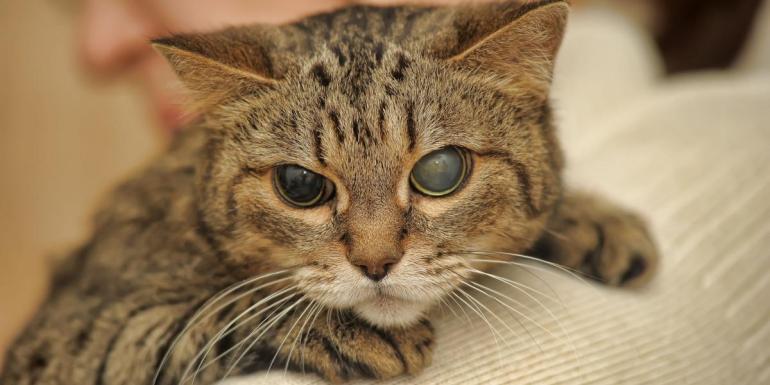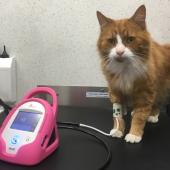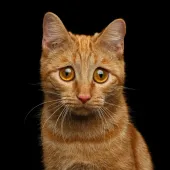Taurine Deficiency in Your Cat: Understanding the Risks, Causes, and Prevention

Taurine deficiency is a significant health concern in cats, as they are unable to produce this essential amino acid in their bodies and must obtain it from their diet. Taurine plays a crucial role in various bodily functions, and its deficiency can lead to severe health issues. Understanding the risks, causes, and prevention methods of taurine deficiency is vital for every cat owner.
Taurine deficiency in your cat
Giving cats an inappropriate food might lead to taurine deficiency. Many major health issues may result from it. Nevertheless, the majority of cats will recover quickly if the issue is identified early and the diet is adjusted.

What is taurine?
Taurine is a type of amino acid that is used to make proteins. It serves a multitude of purposes in the body. Taurine is regarded as a necessary amino acid for cats. Since cats struggle to produce taurine from the other amino acids in their bodies, it can only be obtained through diet. Additionally, their capacity to store taurine is limited. Other mammals are less likely to experience taurine shortage since they have the ability to produce and store taurine as needed.
Why does my cat need taurine?
Taurine is necessary for healthy heart, nervous, and immunological systems, as well as for eyesight and hearing. A severe cardiac condition called dilated cardiomyopathy, in which the heart muscle weakens and thins, can be brought on by a taurine shortage in cats. Congestive heart failure and blood clots in the lungs are possible outcomes of this failing heart. Degeneration of the retinal cells in the rear of the eye due to taurine shortage can potentially lead to blindness and visual impairment. Taurine insufficiency in cats used for breeding can cause miscarriages, stillbirths, low birth weights, and birth abnormalities in the kittens.
Which foods contain taurine?
Only meals containing animal proteins contain taurine. Meat, fish, and seafood have the highest levels, while eggs and dairy products have the lowest levels. Since there is no taurine to be found in plant foods (fruit, vegetables, seeds, nuts, legumes, and grains), vegan or vegetarian diets are not recommended for cats. Meat and other items that have been heated to varied degrees can reduce their taurine concentration. Since commercial cat meals are added with extra quantities of taurine, all of them should have plenty of it; however, commercial dog food is unlikely to have enough taurine for cats. The availability of taurine for intestinal absorption can be reduced by adding specific proteins and fibers, such as rice bran.
Causes of Taurine Deficiency
-
Inadequate Diet: Cats that are fed a diet lacking in high-quality animal-based proteins, such as homemade vegetarian diets or dog food, are at risk of taurine deficiency.
-
Heat Processing: High temperatures during the processing of cat food can degrade taurine, reducing its effectiveness even if it was present in the ingredients originally.
-
Digestive Disorders: Cats with certain digestive disorders may have difficulty absorbing taurine from their food, leading to deficiency.
How would I know my cat was deficient in taurine?
If your cat has not been fed commercial cat food, especially if they have been on a diet heavy in grains, vegetarian or vegan food, or a dog food diet, you may think that they are taurine deficient. Ensuring that homemade diets contain a sufficient amount of taurine can also be challenging.
Taurine deficiency in cats can be undiagnosed for months or even years. While there are no particular symptoms for taurine deficiency, cats may exhibit symptoms including lethargy, low appetite, decreased activity tolerance, and breathing difficulties that are linked to the onset of cardiac disease. In the event of retinal degeneration, vision impairment will follow. Your cat may start to walk more slowly, bump into objects more frequently, leap up and down more clumsily, or vocalize more. They might exhibit a shift in personality, showing signs of increased anxiety, withdrawal, or insecurity. As was previously noted, cats can experience stillbirths or abortions, and kittens can have birth abnormalities, be underweight, or grow slowly.
Signs of Taurine Deficiency
-
Vision Problems: Taurine deficiency can lead to retinal degeneration, causing vision impairment or blindness in cats.
-
Cardiac Issues: Cats with taurine deficiency may develop heart problems, including dilated cardiomyopathy, a condition where the heart becomes enlarged and weakened.
-
Gastrointestinal Problems: Digestive issues such as vomiting and diarrhea can also be symptoms of taurine deficiency.
How will my vet diagnose taurine deficiency?
Based on your cat's food history, your veterinarian might suspect taurine deficiency. If a heart ultrasound is used to diagnose your cat with dilated cardiomyopathy, taurine deficiency may also be suspected. When retinal degeneration is found during an eye exam, it can also be cause for concern.
Taurine levels can be determined by drawing blood, which your veterinarian may take. However, this test may not be reliable if the blood sample is handled improperly, if the cat has recently had a meal, or if there has been recent muscle damage.
Prevention and Treatment
-
Provide High-Quality Cat Food: Choose cat food that lists meat, poultry, or fish as the primary ingredients. These animal-based proteins contain adequate taurine levels.
-
Avoid Homemade Diets Without Veterinary Supervision: Homemade cat diets may lack essential nutrients, including taurine. If you're considering such a diet, consult with a veterinarian to ensure it meets your cat's nutritional needs.
-
Regular Veterinary Check-ups: Regular visits to the veterinarian can help monitor your cat's overall health and catch any potential deficiencies early.
-
Supplementation: If your cat is diagnosed with taurine deficiency, your veterinarian may recommend taurine supplements. It's essential to follow the recommended dosage as excessive supplementation can also lead to health problems.
Will my cat recover?
Your cat has a good chance of recovering if taurine insufficiency is identified at an early stage. In many cases, dilated cardiomyopathy can be reversed with sufficient taurine supplementation. Although taurine supplementation can halt or delay the process of retinal degeneration, it is usually irreversible. While the majority of animals react well to taurine supplementation, others do not.





